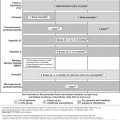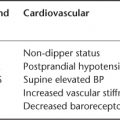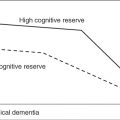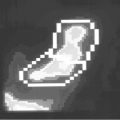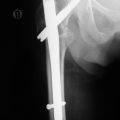Scenes from Everyday Life in the Geriatrics Unit, or how do you do what’s Right?
A Selection of Scenes (Case Histories)
Mrs A
Mrs A, 90 years old, is admitted after a fall. She lives at home alone, but was able to call for help thanks to her remote alarm device. This is the third time in six months that she has been admitted for a fall. No particular cause could be identified, apart from moderate balance disorders.
Mrs A has two sons, one is a surgeon and the other a lawyer. Naturally worried about their mother, they refused to let her return home and raised the idea of nursing home placement. They said that if she was allowed to go home, they would hold the physician responsible for the accident that, in their view, would inevitably ensue.
Mrs A does not see things in the same light. A former militant in the women’s lib movement, with a strong character, she decidedly wants to go home. She also has mild cognitive decline, some memory difficulties that she denies and a Mini Mental State Examination (MMSE) score of 24/30. What should you do?
Mr B
Mr B is 75 years old, a former metallurgy worker, with polyvascular disease and several risk factors (former smoker, hypercholesterolaemia). He had a heart attack three years previously, followed by a variety of complications. He now has a pacemaker for permanent systolic pacing. He has stage IV lower limb arteriopathy, with early-stage necrosis of the right toe. After a consultation in vascular surgery, Mr B accepted to undergo transmetatarsal amputation, which was scheduled rapidly. He was supported and encouraged in this decision by his family. However, the day before the scheduled operation, he suffered a left sylvian stroke with hemiplegia and aphasia.
What is the right decision? Should the operation go ahead? What should you do?
Mr C
Mr C is 81 years old, a former gymnast, physical education teacher and amateur opera singer. He suffers from severe dementia. He had just moved to a new nursing home, after his family suspected some elder abuse in the previous one. He has considerable behavioural problems and every evening at nightfall he gets agitated and shouts, with the shouting increasing in intensity if he is locked in his room. He tends to roam and wanders into the other residents’ rooms, making them afraid of him. The families of other residents are complaining about him. The manager of the nursing home asks the doctor to give Mr C something to calm him. What should you do?
Mr D
Mr D is aged 85 years, a former marketing director, and up to now had been enjoying an active retirement, dividing his time between his grandchildren, his activities in various associations and some travelling. He was found lying on the ground in his house, 3 h after a fall from which he was unable to get up. In the Emergency Department, the cause of the fall was found to be a silent infarction with probable paroxysmal cardiac arrhythmia. The cardiac care unit refused to take him on the grounds that they only had one bed free, which ‘had to be reserved’ for a potentially younger patient. In the end, he was admitted to the geriatrics unit and the cardiac threat passed, but he developed acute renal insufficiency due to ‘crush syndrome’ brought on by the fall. The nephrology intensive care unit is reluctant to take him for haemodialysis because of his advanced age and the cardiac risk.
Should the physician insist? What should you do?
The Approach to Ethical Debate
The above four situations clearly introduce an ethical debate: how do you do what is right?
General ethical reflection based on moral philosophy filters down into these situations, where decisions are difficult because there is a conflict of values. Morals, law and ethics are intimately related. Moral philosophy tries to define universally what is right, what is good and what is evil through imperatives, and tries to act fairly. The law fixes rules, duties and limits for life in society. Heteronomous law applies to everyone from the outside and in a formal manner. Ethics is a process of questioning, in special situations, with a view to doing what is right for others and what is good in general and making fair and efficacious decisions. It could be defined as ‘philosophical wisdom that guides practical existence towards the representation of good’ in specific situations. Through the questions that it raises, medical ethics seeks to determine what is right, taking into account the state of scientific knowledge and also the constraints related to the patients and their psychological, social and economic environment.
There are no ethics specific to advanced age. Conversely, in elderly populations, there are particular situations that call for increased ethical vigilance.
The primary ethical principle, around which all the others are based, is the principle of humanity and dignity. From birth to the grave, every person belongs to a community of human beings and, as such, possesses a unique quality that cannot be estimated, measured or compared. As stated by Kant, dignity is essential, superior at all costs and can stand neither equivalent nor quantification, comparison nor commerce.
These reflections on general ethics have particularly concrete applications in ethics as applied to healthcare. For example, a patient with advanced Alzheimer’s disease, bedridden and mute, has no less value or dignity than the physician caring for him or than the politician shaping the laws governing the management of this patient’s dependence.
Similarly, very elderly persons are citizens in their own right, who can and should be able to state their opinion. These persons have stood the test of time and, in many cases, possess a wisdom that merits respect. Their rights and duties should by no means be rescinded (except in special clinical circumstances).
However, it is obvious that although the principles are straightforward, their application in daily life is often problematic: on the one hand, because of the attitude of our society towards elderly people—our productivist society exalts youth and decries old age, which incites fear—and, on the other hand, because of the frailty and vulnerability of many elderly people, often also compounded by cognitive decline that can alter their judgement.
Obstacles and Restraints
The obstacles and restraints that prevent us from having an ethical attitude towards elderly people are manifold. It is useful to distinguish between obstacles that arise from the organization of the healthcare system and health professionals’ behaviour and those that arise from the frailty of the patients themselves. The former are manifested by ‘ageism’, which is reflected by forms of exclusion based solely on age. This form of exclusion is all the more hypocritical since it is rarely labelled as such.
Stay updated, free articles. Join our Telegram channel

Full access? Get Clinical Tree


